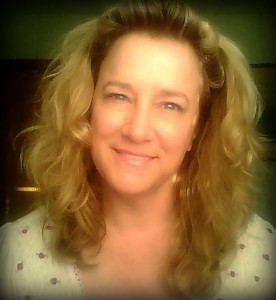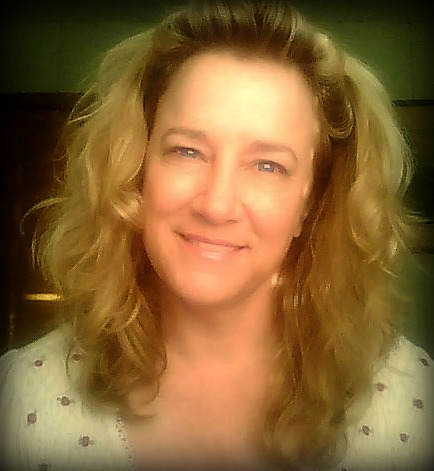 Quality has suddenly become a buzzword in the Indie Community, whether it’s Indie books, gaming, movies, etc.
Quality has suddenly become a buzzword in the Indie Community, whether it’s Indie books, gaming, movies, etc.
Imagine that! (All of you should know by now that this is my personal bugaboo.)
It’s certainly become a topic on the readers forums on Amazon and elsewhere, as someone commented. “All these freebies which we use as promo for sales seem to be creating an environment where some readers only go free because they toss it after one chapter if it’s rubbish and only pay for a “real” author.” One response to the Indie title on one site was “That’s good support for why attaching a label like “Indie” and trying to make it be a badge of quality might be more trouble than it’s worth. After all, eventually, the work defines the label, not the other way around.” As to that last, he’s right. The work does define the label, and for too many Indie writers that doesn’t seem to mean much. The gentleman in question added later that there’s not much value for an author to call themselves Indie. One author recently proposed that – lacking an editor – you should just post to the marketplace and wait for the readers to comment, then revise and repost.
That has to change or the perception that Indie writing is rubbish is one that will stick and all of our hard work will be for nothing. And the traditional publishers will be proven right, that this Wild West Indie publishing thing was just a flash in the pan, a global slush pile from which a rare few gems emerged.
Of course some folks will argue – as they always do – that traditional publishers still miss stuff. They sure do. Is that an excuse for us to do less? Do we hate being held to a higher standard? Yes. It’s not fair, but who said that life was fair? Is that a reason for us to do less? No. I’ve always wondered when striving for quality became a bad thing.
So, what do we do? Do we want to become or have gatekeepers again? No, of course not. But there are things we can and should do.
One, never put out less than your best work. I know that not everyone can afford an editor, but that doesn’t mean you shouldn’t try to be a good self-editor. A copy of William Strunk’s The Elements of Style is $2.99 on Amazon.com. Use Beta readers. If you ask for help, listen before responding, and don’t be mean. And hire an editor as soon as you can. That’s what I did – after applying all of the above.
Two, stop lying to each other and readers. Some people may not be happy with this comment, but being supportive doesn’t mean never having to say you’re sorry. If the cover really isn’t that good, don’t say it’s fine. If someone asks for a comment, don’t say ‘it’s okay’ unless it is. Don’t like/tag any book unless it deserves it. I won’t like, tag or otherwise approve anything that I haven’t at least read a sample of. You may think that liking or tagging doesn’t mean anything, but it does, it tells readers that this many people approved. I’ll like your author page if you ask. I have and do participate in liking/tagging groups, but I read that sample and if it’s not that good I don’t like or tag it. And I don’t hold grammar against it, if it’s compelling enough I’ll like it – but I’ve learned not to point out that there were issues… See next point.
Three, stop lying to yourselves. Everyone makes mistakes. That’s okay. Learn to accept criticism with grace, it’s part of the game. (For those offering advice… be nice. There are ways and ways of offering criticism. Say “Did you notice…” rather than “you misspelled this, that and the other thing”. Context makes a difference. Be nicer to newbies, they’re more tender). Personally, although I cringe every time someone tells me I made a mistake, I’m grateful they pointed it out and I fix it right away. You should be, too. Especially because they took the risk of your ire to tell you so.
Oh, and just for general reference, just because I haven’t liked, tagged, commented or whatever doesn’t mean I hated your book, it just means I haven’t read it.
As a community we want to be supportive of Indie writers, but we also represent Indie writers…and so will they. Not only does the rest of the world hold us to a higher standard, but we should, too, if we want to be a real force in the publishing world.
* * * * *
Valerie Douglas is a contributing Author for Indies Unlimited and the writer of the recently released romantic suspense novel Lucky Charm, the epic fantasy series The Coming Storm and the contemporary romance series The Millersburg Quartet. For more information please see the IU Bio page, her blog http://valeriedouglasbooks.blogspot.com or visit her web page http://www.valeriedouglasbooks.com/[subscribe2]


Great post!
I'm the same way with my likes/tags. If I DON'T like it, I won't. Simple as that. I think, for all intents and purposes, being an "indie" author means that much more hard work to prove that the publishing industry is, indeed wrong, and that there can be diamonds among the slush. I just recently read a book that would have done wonders if they would have had a proper editor and a few beta readers. It was good, but it wasn't as good as it could have been. And I'll tell the author so, as soon as bloody finals are done. With "indie" comes a sense of responsibility, I think, to help each other get better because there are no professional editors on hand or other perks that come with the "big name" publishing industry.
I agree completely about needing to be honest. It can be done with tact, and should be. Honest, supportive feedback helps us become better writers, getting closer to that quality you mentioned. We want to make our work, and the Indie label, something to be proud of. Without honesty among ourselves that will not happen. Yes, it's painful, but it is so necessary.
Great. I just got done mentioning to someone that all I spent money on in my writing "career" was Strunk's book and you go and post the same damn thing here. Sheesh. 😛
Great blog, too. It would have to be good, wouldn't it? I jes' can't win, Jethro.
🙂
I'm beginning to suspect that the "load it up to Amazon and let the nitpicking readers do the editing for me" method of editing is common amongst indie authors; I've heard at least one indie author shrug off constructive criticism of the editing with, "Oh, I'm just waiting for a few more readers to point out my mistakes before I rewrite it and prepare it for print."
The real question isn't, "How can we tactfully point out the errors in this published manuscript?" but, "How do we tactfully explain to these authors that they are showing their peers and their readers great disrespect by not having their manuscripts edited properly right from the get-go?"
I don't understand the concept of intentionally putting a draft in the marketplace. Readers aren't that easy to come by, why waste them with a bad first experience?
Many of them don't realize how many people might be seeing it, even if they do see their numbers. They don't realize that the one person who commented in a review reflects 100 people who saw it but didn't bother to comment. And they don't care how it reflects on others…
Are you aware of Collectives?
As few as three people can get together for mutual support and editing each other's work and raise the quality bar to professional level, as long as they are all literate and sensible.
They can also pool sources on book cover art.
I've actually started one… although the official announcement about it won't be until June 1
Yes to all!
Sometimes we can't afford editors, and yes, we do make mistakes. I had one review on Az and it was NASTY! Good thing Az allows replies to the posts, as I politely wrote that person back. After they cooled off, they were more pleasant and gave me a run down of where my goofs were. Painful as it was, I thanked this person, IMMEDIATELY went and fixed the errors, and republished on all the sites. They actually pulled their review, but never posted a new one. At any rate, despite being slammed, I made the best of it.
The next book is now being edited, because I made enough sales from pimping the free one (it generated sales in my back catalog) that I can afford it.
In the end, quality should be our goal.
As a pro editor, a writer, and a publishing professional for 35 years now, (and believe me, I'm not getting rich doing this) editing is an acquired skill. It's a lot like surgery. I mean, you wouldn't take out your own appendix, would you?
And as supportive as your mom,your friends, and even those mythical creatures commonly known as "beta readers" can be,support is only part of the operation. Objectivity, real knowledge of the craft, and experience in separating the wheat from the chaff can take an okay draft and turn it into not just a good book, but a great one.
Well, as someone who knows a few of those mythical beta readers, and has used them, I like them for clearing up plot gaps, overused or repetitive words before I send my manuscript to an editor. As a stopgap, they're still better than nothing. Most writers are not only not getting rich, many strain their budgets to pay for even the most basic services. Editors are worth their weight in gold, but many don't have the gold. It's better for writers to do something than to do nothing, and post complete crap for readers to edit.
I think we need to both – start with beta readers and make it the best you can, then as Valerie says, get it professionally edited – or as close to that as you can afford. But waiting, as that one person did, for readers to pint out mistakes, to me, sounds like professional suicide.
This is an excellent post. As I am getting ready to put out my first book. Just because I don't want to turn out crap to the reading public, I went through several revisions before even handing off my book to be edited. There was one book I read that was by an "indie" author and while the story was interesting, I just had to stop reading it due to all of the grammar issues and other things that could have used some serious editing. It's sad when things like that kill what could have been a decent story.